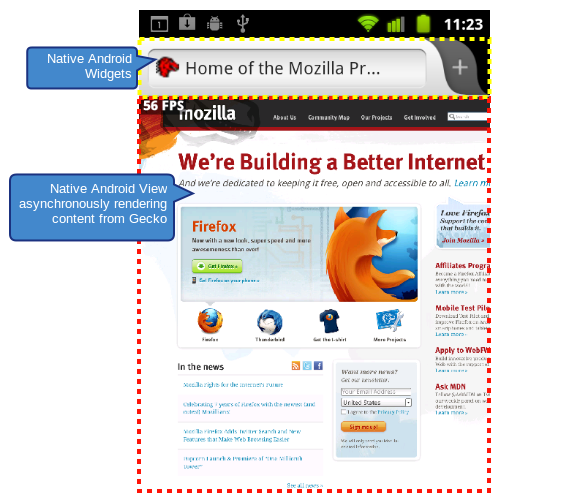#1 Features :
Firefox 5 has arrived with lot of changes and features such as ‘Do not track’, which allows users to control – how their behavior and data are being tracked or used on the internet. Firefox 5.0 has focused on adding social and useful features (such as PDF Viewer, Sync etc,) related to common desktop users that was already available in its competitor web browsers such as Chrome. Features can be easily added by means of plugins – and Firefox has a number of useful plugins available free to use.
Important features of Firefox 5.0
- Do not Track
- Social sharing options
- PDF Viewer
- MP3 Player
- Small home icon
- Colored search (engine) bars
- Improved sync feature
- Multiple account login
On the other hand Google chrome has also added a lot of new and exciting features in vs 12.0. It has already most of the features implemented, what Firefox got now, Google has continuously trying to add cutting edge – innovative features to chrome. eg HTML 5 performance/support, hardware accelerated 3D CSS (which allow developers to create better animation effects in the browser, e.g in browser based games) etc. Plugins are available but the number is very less and it’s not so useful as compare to Firefox, despite of having better plugin architecture than Firefox. Firefox Wins in this case.
Some important features include -
- Malicious file download protection
- Hardware accelerated 3D CSS support
- Improved screen reader support
#2 Performance :
Firefox performs well in Windows and Mac based OS but it sucks when it comes to Linux based operating system, After the major release of Firefox (I mean after version 4.0), we expected better performance on Linux distros such as Ubuntu or Fedora, but things got bad, surely it’s not better than before. If you will use any plugin, then the performance is extremely bad.
On the other hand, Google Chrome rocks on Linux based OS as well as on Windows and Mac. The performance is quite well as compared to Firefox, on Ubuntu or other Linux based operating system. Chrome Wins!
#3 Stability :
Firefox often hangs if a number of tabs is open (specially on GNU/Linux) wile Chrome is stable. So Google Chrome is far stable than Firefox. Chrome wins in this case.
#4 Security :
Both are secure but chrome had added some special features to protect users from downloading malwares or other infected files. Firefox seems better!
#5 Speed :
Firefox has improved speed a lot, because speed is the most dominant factor while choosing the browser for common purposes. Firefox supports HTTP pipelining which can improve the browsers speed a lot but it may cause instability, while chrome doesn’t support this. Google Chrome is fast from the beginning! Google chrome has added some advanced functionality such as Pre DNS fetching (The links pointed (from the current page) to other domain names are resolved before the user clicks on that link), Loading pages before the completion of URL in address bar etc, to improve the surfing speed. Chrome Wins!


















